The swim
I sit above Easan Dubha, a grade 5 rapid on the Orchy. I have run this drop many times before and the familiarity leads me to a dangerous level of complacency. I am too relaxed. By the time I arrive on the lip, I realise I am too far left and drop sideways into the hole. After a good trashing, I get bagged out and watch my boat eventually re emerge downstream split in half. As I walk back to the car, tail between my legs I chuckle to myself, “silly Jonny”. A few days later when I’m back on the water my paddling is jerky, I’m nervous and I’m not having fun. I realise the swim has knocked my confidence.
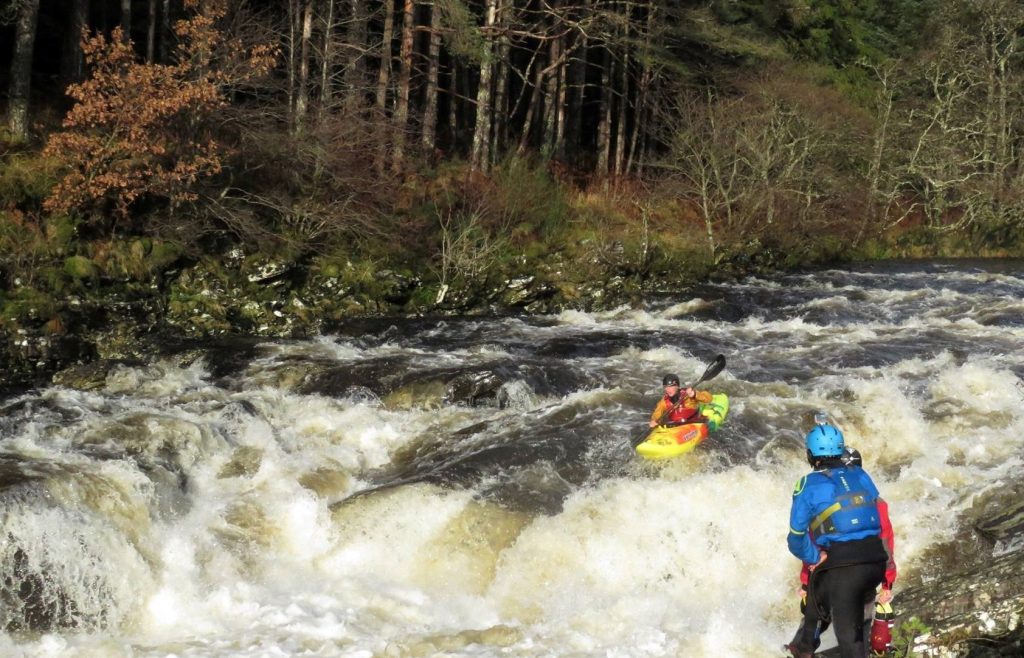
What is confidence?
Lots of people that I coach are keen to increase their confidence, which after my incident, I can totally relate to. Confidence is defined as ‘the feeling that you can have faith in something’. Like trust, it takes a while to build but can be lost in an instant.
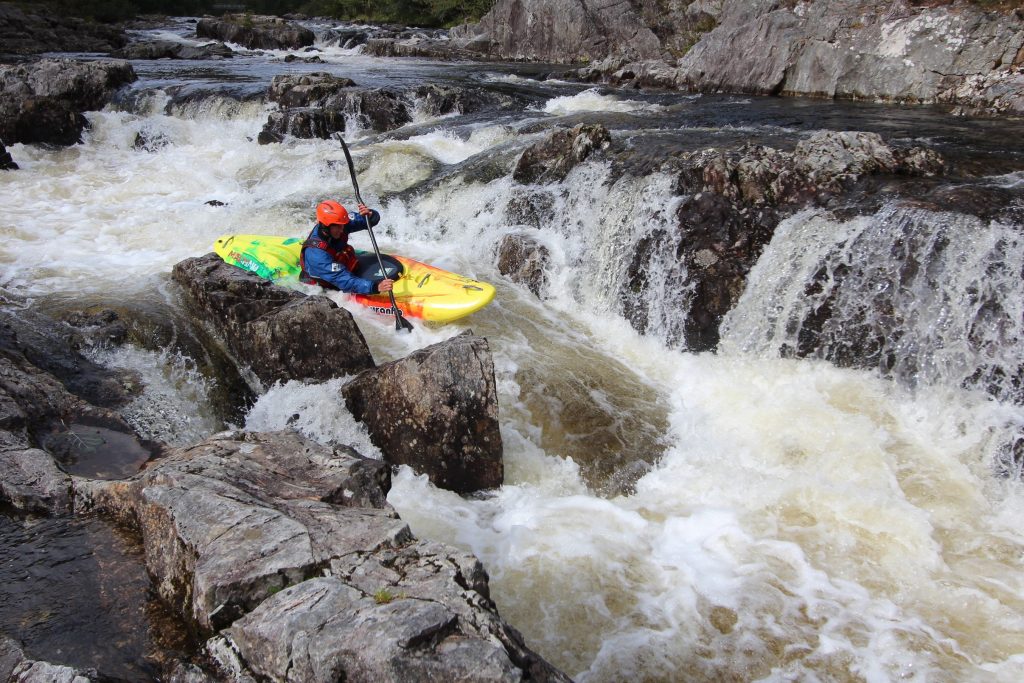
How do you gain confidence?
Confidence is gained by using experiences to build trust in the ability to perform future tasks. So to build confidence in a kayak, you should have fun styling lines well within your ability. This will give you the confidence to paddle the same, if not harder white water in the future. Gaining consistency with moves also makes you more confident that you will be able to do a similar move in the future. I also use ‘positive self talk’ to reassure me that I have the required skills to carry out a particular task.
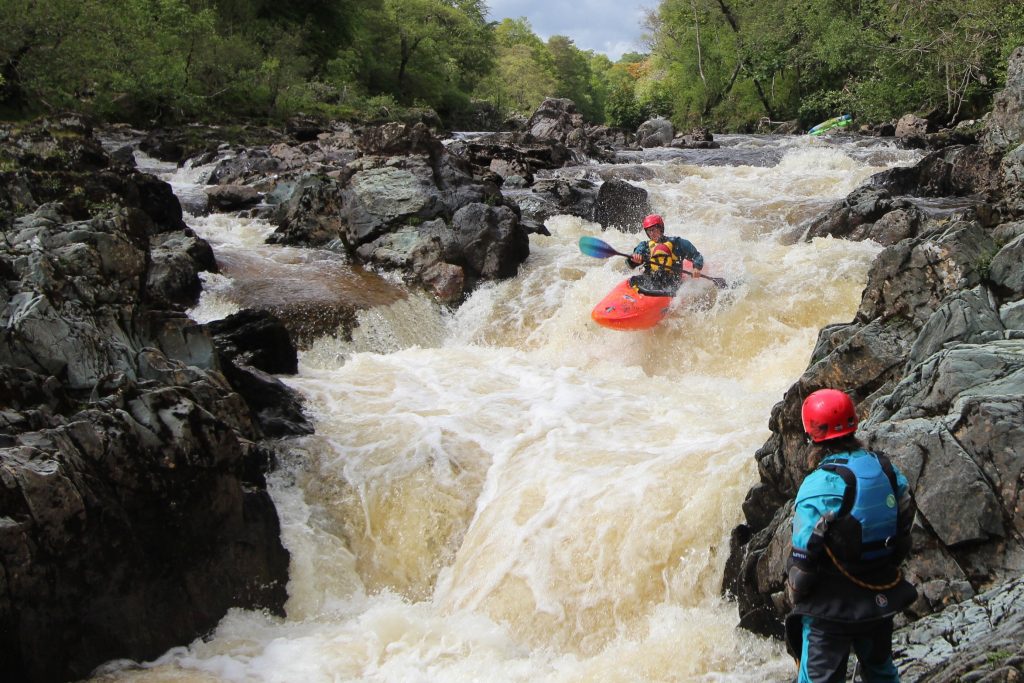
Reasons for losing confidence
Paddlers lose confidence for lots of reasons. My swim is a classic example when suddenly skills I thought I could rely on, failed me, meaning I could no longer trust them. Time out of the boat means that you become uncertain if you can still rely upon past experiences as much as you previously could. A new piece of kit such as a boat will feel strange and take a while to gain confidence in. Everyone has off days, which if you don’t recognise, can result in you pushing too much and again losing confidence. Negative chat before the river such as “the last time we paddled this we had an epic” can cause you to doubt you have enough skill to paddle it, which creates a downward spiral.
Rebuilding confidence
Everyone will experience fluctuations in confidence. The key thing is to recognise the dip and have strategies to build it up in the short term (on the river) and over time (future rivers).
In the short term, coping mechanisms to manage your lack of confidence can be really useful. The acronym GRIP (Goal set, Relax, Imagery, Positive self talk) can be really useful as a short term fix. Set a Goal i.e. “punch that diagonal”. Sit in the eddy above and take some deep breaths to Relax. Shut your eyes and use Imagery to run through a successful performance. Say a Positive phrase to focus your mind and then nail the line! This can be great to use on the way to the river or at a specific point in the day.
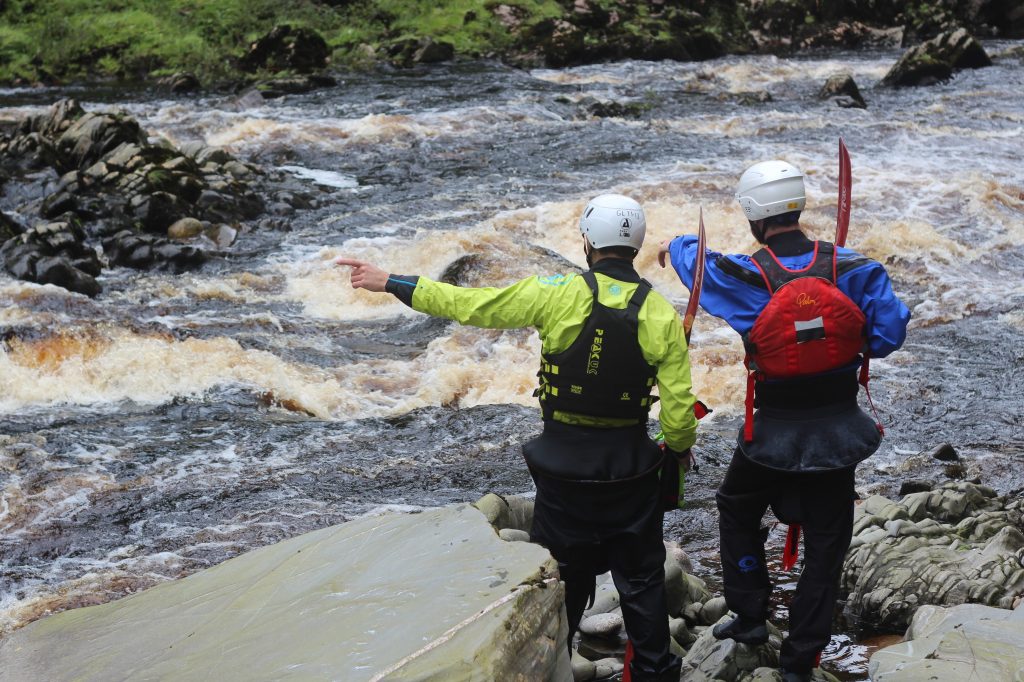
After my incident, it took a few weeks to build confidence back up again. I dropped the grade of river to; have fun, nail lines and play more. I paddled with supportive people that paddled at my pace, didn’t tell scary stories and included me in the decision making process. I set realistic goals to help me progress but not push it too hard. Also, an important thing to think about is your motivation for paddling. Is it to paddle hard rivers, have fun, hang out with mates….? Continually paddling hard rivers is rubbish for confidence, if all you want to do is have a laugh on the water.
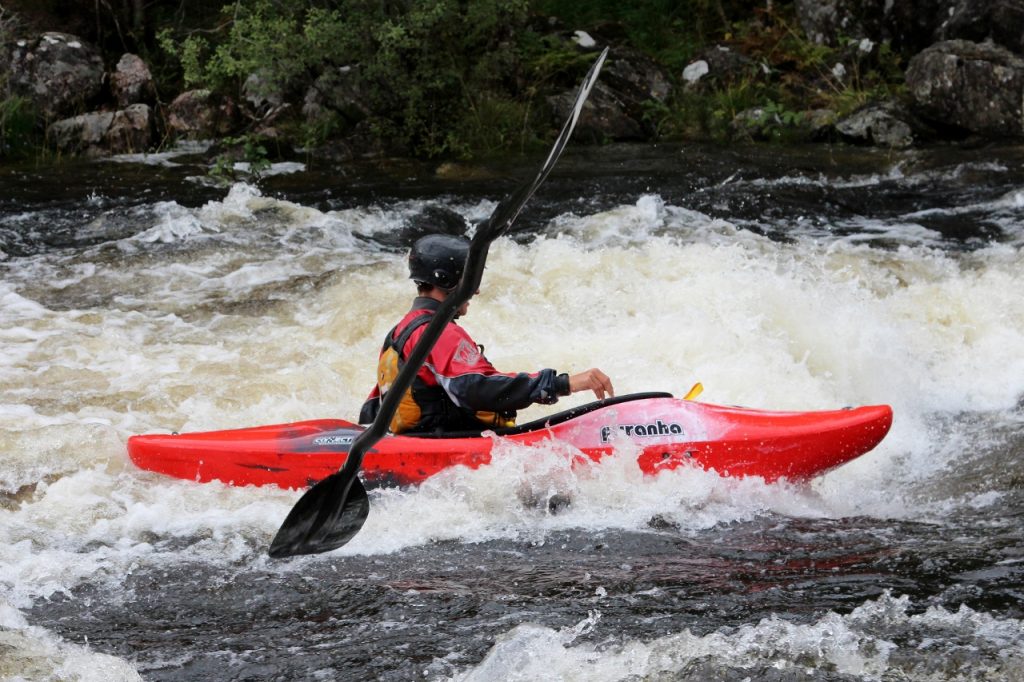
In conclusion, everyone will experience dips of confidence with their paddling. The key thing is to recognise them and have strategies in place to cope in the short term and then build it back up in the longer term. Just don’t get too cocky!
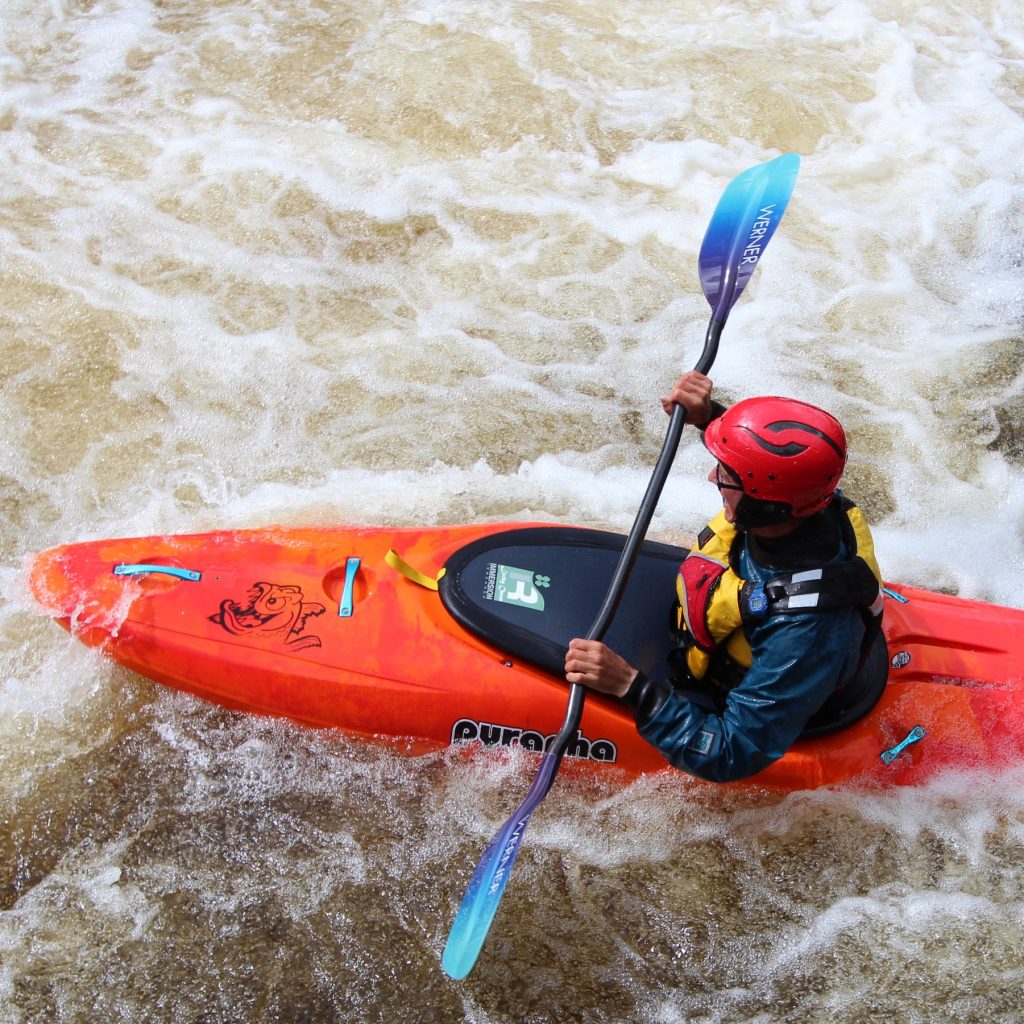
Jonny Hawkins runs the Highland Kayak School which provides high quality kayak coaching and guiding in the Scottish Highlands.



